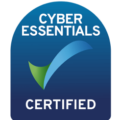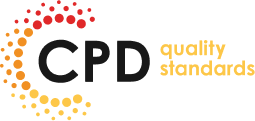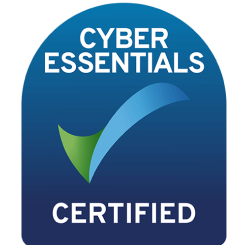Why Is HIPAA Certification Important?
HIPAA compliance is a requirement for many businesses. If you’re not compliant, it could cost you in terms of time and money.
HIPAA certification can help you attract new customers and retain existing ones by showing them that their data is safe with your organization. When customers feel confident about the security of their information, they are more likely to do business with you–and tell others about how well they were treated by your company as well!
The foremost reason to pursue HIPAA certification is to protect your business from costly data breaches. In the event of a breach, organizations that are not HIPAA-compliant may face severe fines and legal consequences. By adhering to HIPAA standards, you can greatly reduce the risk of such incidents.
In a world where data privacy is a growing concern, having HIPAA certification can be a powerful marketing tool. Many clients, especially in the healthcare and insurance industries, will only consider doing business with organizations that demonstrate HIPAA compliance. Certification can set you apart from competitors and open doors to lucrative partnerships.
HIPAA certification shows your commitment to protecting sensitive patient data. It reassures your clients, partners, and stakeholders that you take data security seriously, which can enhance your reputation and trustworthiness.
How to Get Certified
HIPAA certification is not required by law. HIPAA Certification Process is voluntary and not all employers require it.Now that we’ve established the importance of HIPAA certification, let’s explore the steps to obtain it:
Educate Yourself: Familiarize yourself with the HIPAA regulations. There are two primary rules you need to understand: the Privacy Rule and the Security Rule. The Privacy Rule governs the use and disclosure of PHI, while the Security Rule outlines the security measures necessary to protect electronic PHI (ePHI).
Conduct a Risk Assessment: Assess the potential risks and vulnerabilities in your organization’s handling of PHI and ePHI. Identify areas where you may need to make improvements to meet HIPAA standards.
Develop Policies and Procedures: Create comprehensive policies and procedures that align with HIPAA requirements. Ensure that your staff is trained in these policies and understands their responsibilities.
Implement Security Measures: Put in place the necessary technical, administrative, and physical safeguards to protect PHI and ePHI. This may involve encryption, access controls, and secure storage solutions.
Audit and Monitor: Regularly audit your processes and systems to ensure compliance. Implement monitoring mechanisms to detect and respond to security incidents promptly.
Documentation: Maintain thorough documentation of your HIPAA compliance efforts, including policies, procedures, training records, risk assessments, and audit reports.
HIPAA Audit: Consider undergoing a voluntary HIPAA audit by an accredited auditor. While not mandatory, this external validation can further demonstrate your commitment to compliance.
Certification: Although there is no official “HIPAA certification” program, you can obtain third-party certifications like the Certified HIPAA Security Professional (CHSP) or Certified HIPAA Privacy Security Expert (CHPSE) to showcase your expertise and commitment.
What Does an Accredited Certification Program Look Like?
If you’re looking for a HIPAA certification program, make sure it’s accredited by ANSI. The ANSI Accreditation Program is an independent body that ensures that certification programs meet certain standards of quality and integrity.
By choosing an accredited program, you can be sure that it has undergone thorough review by experts in the field of health information management (HIM). This means that your training will be conducted by qualified instructors who know what they’re talking about–and who can give you valuable insight into how to navigate the complex world of healthcare data security law.
HIPAA certification can help you and your business.
HIPAA compliance is important for any business that handles medical information. HIPAA’S primary goal is to protect the privacy of patients’ medical records, but it also regulates how health care providers share data with other organizations. This can include your business if you have employees who work with patient data or sell products and services related to healthcare.
HIPAA certification helps ensure you are in compliance with HIPAA standards because it tests your knowledge about how these regulations apply to your business activities (for example, do you know what qualifies as protected health information?). Certification also demonstrates that you’ve taken steps toward protecting patient privacy–something many consumers look for when choosing vendors or service providers. In fact, according certification can help attract new customers because people trust certified businesses more than those without credentials!
When incorporating HIPAA compliant video conferencing into your operations, it’s crucial to select platforms like iotum that adhere to the stringent security and privacy requirements outlined by HIPAA, ensuring that sensitive healthcare information exchanged during telehealth sessions remains confidential and protected.
Conclusion
HIPAA is a complex and confusing law, so it’s easy to understand why many people are confused about the certification process. However, with the right information and guidance from an expert in this field, you can make sure that your business is compliant with HIPAA regulations while avoiding costly mistakes.


![]() 6 minutes
6 minutes


































